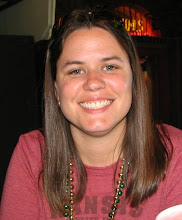SmartBoard Lessons was pretty catchy. It starts out with some upbeat music and utilizes various other sound effects. This podcast is hosted by Ben Hazzard and Joan Badger. They both seem to work well together, although I have to admit that at times Mr. Hazzard was very annoying.There were moments when he talked over his co-host and I missed what she was trying to say completely. However, he made some very persuasive arguments about the topic. Otherwise, I did gain some valuable information. SmartBoard Lessons podcast provides lesson ideas and helpful resources that can be found on the web. Their main focus though is the use of interactive white boards in the classroom. They also answered questions from listeners that sent emails.
Kidcast is hosted by Dan Schmit and is a companion to the book that he wrote titled, Podcasting in the Classroom. He is the only host and from what I gathered from listening to episode #53- Podcasting and Fieldtrips, he does his show from a script or at least a detailed outline.
ConnectLearning is hosted by David Warlick. These podcasts unlike the previous two that I have mentioned is more of an interview. I listened to episode 90 and 91. During these two episodes Mr. Warlick was at the North Carolina School Media Association Conference. Basically educators came together and talked about the ways that they thought pocasting could be used in the classroom. This was totally unedited and very informal. The topics that he covers as he travels to different conferences are usually education and teaching in the 21st century classroom.
EdTechtalk is hosted by Maria Knee. She is a kindergarten teacher in Deerfield, NH. Ms. Knee has guests join her to talk about different topics of interests and they are able to share with listeners their thoughts on the subject. The interesting thing about this podcast is that listeners can skype in to comment or ask questions. They can also participate from a chat room. I found that very interesting!
MacBreak Weekly is more of a roundtable discussion. Something more like you would experience with Meet the Press. There are several hosts and also have guests that join them. The topic of this podcast is the latest Mac news, such as new products, software, stock information,and much more.
The last podcast, This Week in Photography, is hosted by Alex Lindsay and Scott Bourne. They also feature guests that come on and talk about (you guessed it) everything photography.Topics cover technology, new products, techniques, and the latest photography news.
There are many podcasts that cover an array of topics. You can find one on just about any subject. I think that this would be a great tool to use in the classroom, especially middle school and high school. There are endless possibilities with technology. There are so many resources that are available to teachers, parents, and students!!!!!What an exciting time to be an educator!!!!









